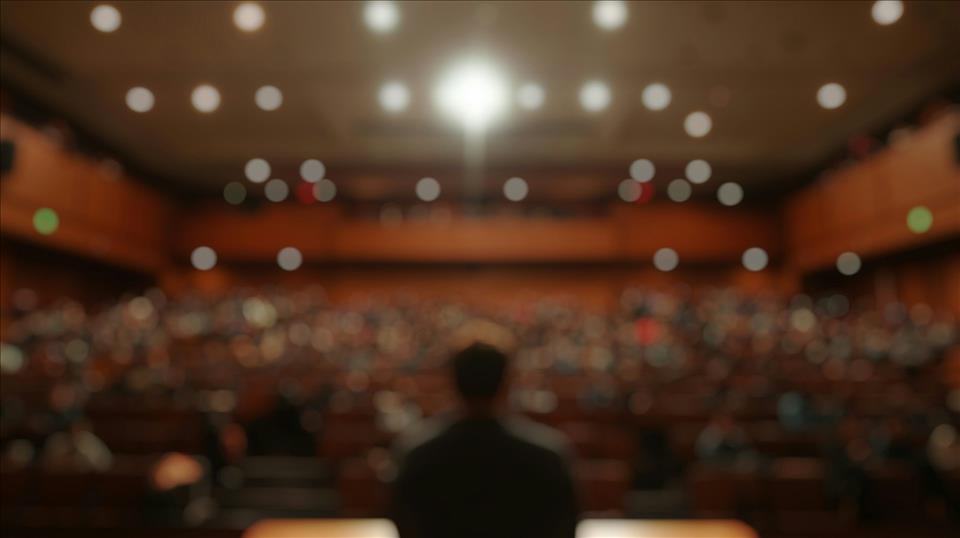
Why Threats To Academic Freedom Are Growing And How Universities Can Respond To Intimidation
In early November 2025, it was reported that Sheffield Hallam University had paused Professor Laura Murphy's research on Uyghur forced labour in China, later apologised, and restarted the work. Media outlets linked the pause to pressure from Chinese authorities. South Yorkshire Police have referred the allegations on to counter-terrorism police as they are thought to fall under the National Security Act.
A spokesperson for Sheffield Hallam said the pause arose from insurance and other procedural issues and denied any China-related commercial motive.
“We have apologised to Professor Murphy and wish to make clear our commitment to supporting her research and to securing and promoting freedom of speech and academic freedom within the law,” the spokesperson said.
Academic freedom is“the human right to acquire, develop, transmit, apply, and engage with a diversity of knowledge and ideas through research, teaching, learning, and discourse.” When scholarship is restricted or politically steered, the public loses access to evidence and the means to hold power to account.
Academic freedom is a measure of democratic health, and tracks closely with the quality of democratic institutions. Declines often appear before other signs of democratic erosion. Global datasets such as the Academic Freedom Index and V-Dem show a decade of decline across much of the world.
Scholars at Risk, a non-governmental organisation supporting threatened academics, reports similar patterns. Their findings of 395 attacks on scholars, students, and institutions in 49 countries and territories between July 2024 and June 2025 are“indicative of deteriorating global conditions for academic freedom”.
How pressure on academic freedom happensPressure on academic freedom is rarely dramatic. In domestic cases, where a government puts pressure on academics in its own country, it often accumulates through policies and decisions that narrow intellectual space and encourage self-censorship.
A familiar playbook targets institutions, academics and students. It includes politicised appointments, selective funding or budget cuts, legal intimidation through strategic lawsuits and travel and conference bans.
Alongside domestic pressures, transnational repression is a rising threat. This is intimidation, surveillance or coercion directed from outside a country's borders. This is what is alleged in the Sheffield Hallam case.

Sheffield Hallam University buildings. Steve Travelguide/Shutterstock
Transnational repression increasingly targets civil society organisations, journalists, and academia. It undermines democratic life, and reminds us that universities are part of the infrastructure of scrutiny and accountability.
Human rights organisations Freedom House and Amnesty International have documented the experiences of scholars and students from China, Hong Kong, Iran, Russia and elsewhere working abroad. These scholars have reported monitoring, online harassment and even contact by domestic authorities with family members back home after campus events.
Pressure on academic freedom is a democratic problem first. Wherever it originates, the effect is the same: less evidence in the public sphere.
A societal rightAcademic freedom is increasingly recognised as a human right, grounded in article 15 (the right to science) of the international covenant on economic, social and cultural rights. This is an important connection. It underscores the societal importance of freedoms in research, teaching and academic debate.
Its connection to international human rights standards also means that states and institutions have duties to respect, protect and fulfil the right. They must refrain from unlawful interference and prevent third-party pressure. They should take positive measures so teaching and research can proceed without fear.
In England, the Higher Education (Freedom of Speech) Act 2023 places duties on universities to protect lawful speech. The Office for Students confirms the main duties took effect on 1 August 2025.
Where intimidation on UK soil is state linked, the National Security Act 2023 includes offences of assisting a foreign intelligence service and foreign interference. The Foreign Influence Registration Scheme adds further levers.
For example, it requires the disclosure of political influence directed by foreign powers. It is important that these frameworks are used to enable, not chill, teaching, research, campus debate and external engagement.
What universities can doThe following three steps reflect emerging international standards. Universities need clear policy, structured protection, and transparent escalation, creating workable defences they can implement.
1. Adopt a clear policy on academic freedom and transnational repression
Universities should commit to non-interference in research and teaching. They should have a single confidential reporting channel for intimidation, and protection for diaspora and exiled communities. Make these rules visible in staff and student guidance.
2. Build a protection pipeline
Universities should assess risks for sensitive research or fieldwork, including digital and family exposure. They should assign a case lead, provide legal and security advice, and, where needed, relocate or host threatened scholars. They should embed funding rules that are neutral towards different viewpoints and insert academic freedom clauses in all partnerships.
3. Document and escalate threats
Universities should keep an anonymised log of interference attempts. They should publish funding and partnership registers, and report credible threats to the appropriate authorities.
They should train staff to spot red flags such as pressure through consulates, funders or foreign institutions. University staff responding to threats should act in line with their country's human rights obligations to protect human rights defenders, including exiled academics.
Academic freedom keeps evidence and ideas in public view. When institutions or authorities yield to pressure, whether foreign or domestic, the loss extends beyond academia. Protecting scholars' freedom to inquire protects the public's freedom to know.

Legal Disclaimer:
MENAFN provides the
information “as is” without warranty of any kind. We do not accept
any responsibility or liability for the accuracy, content, images,
videos, licenses, completeness, legality, or reliability of the information
contained in this article. If you have any complaints or copyright
issues related to this article, kindly contact the provider above.


















Comments
No comment